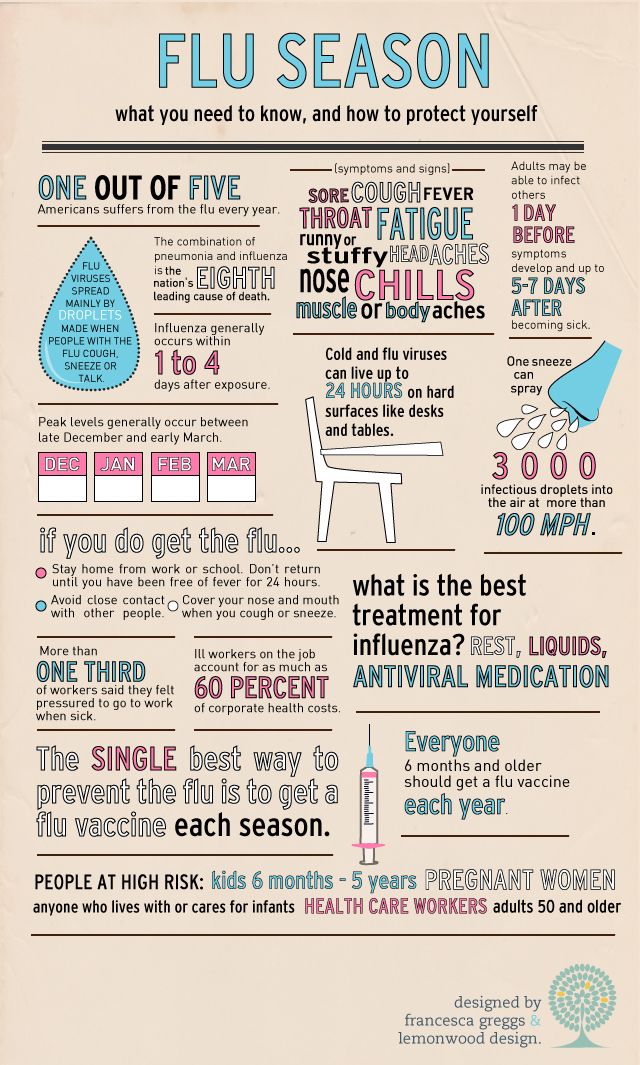Pregnancy cough and cold
Coughs and Colds in Pregnancy
Why get a flu shot?
- Pregnant women who get the flu are at higher risk of hospitalization, and even death, than non-pregnant women.
- Severe illness in the pregnant mother can also be dangerous to her fetus.
- When you get your flu shot, your body starts to make antibodies that help protect you and your baby against the flu.
- Antibodies can be passed on to your unborn baby, and help protect the baby for up to six months after he or she is born.
- The Society of Obstetricians and Gynecologists of Canada, Health Canada and the Centers for Disease Control and Prevention all recommend a flu shot in pregnancy.
See the Centers for Disease Control and Prevention flyer on why pregnant women need a flu shot.
Wash your hands
Washing your hands with soap and water (or using an alcohol hand rub) is the most important method of preventing the spread of infection. This is why you will see all the staff washing their hands before and after caring for their patients. We encourage patients, families and visitors to also wash their hands frequently.
Seasonal allergies
- Avoid exposure to allergy triggers
- Keep windows in your house and car closed when pollen and mold levels are high (spring and summer for pollen, late summer and fall for molds)
- Chlorpheniramine (eg. Chlor-Tripolon), diphenhydramine (Benadryl), Ioratadine (Claritin) and cetirizine (Reactine) are first-line anti-histamines for the treatment of allergies during pregnancy
Cough
- To help eliminate secretions, drink plenty of water
- Dextromethorphan syrup (e.g. Benylin DM) can be used to relieve a dry cough
- Most cough drops (e.g. Halls) are safe in pregnancy
- Consult your family doctor if:
- Your cough persists beyond seven (7) days
- It is a productive cough with greenish secretions
- You have a fever (over 38°C oral)
- If you have trouble breathing/have wheezing
- Avoid preparations containing pseudoephedrine
- these are usually medications that say they will clear your sinuses Speak to your doctor or pharmacist if you are unsure
Sore throat
- Gargling with salt water for 15 seconds every hour may help relieve a sore throat
- Lozenges (e.
 g. Halls) can be used
g. Halls) can be used - Acetominophen (e.g. Tylenol) can also relieve a sore throat
- Consult your family doctor if:
- Your symptoms are not improving after three days
- You have a fever (over 38°C oral)
Reasons to see your doctor
- If your symptoms are not improving after three days
- If you have a cough with greenish/yellow secretions
- If you have trouble breathing/have wheezing
Nasal congestion and cold
- If it does not work, use a nasal spray decongestant such as xylometazoline (e.g. Otrivin) or oxymetazoline (e.g. Dristan) for a maximum of three (3) days. Extended use could aggravate your congestion.
- If the congestion persists beyond the period of treatment, consult your family doctor
Fever
- Acetominophen (e.g. Tylenol) can help lower your fever
- An oral temperature of 38 to 38.
 4°C should be evaluated by your care provider
4°C should be evaluated by your care provider
Prevention is better than a cure!
You must not rely on the information on this website as an alternative to medical advice from your doctor or other professional healthcare provider. If you have any specific questions about any medical matter you should consult your healthcare provider. If you think you may be suffering from any medical condition you should seek immediate medical attention. You should never delay seeking medical advice, disregard medical advice, or discontinue medical treatment because of information on this website.
Treating a Cold or Flu When Pregnant
We include products we think are useful for our readers. If you buy through links on this page, we may earn a small commission Here’s our process.
Healthline only shows you brands and products that we stand behind.
Our team thoroughly researches and evaluates the recommendations we make on our site. To establish that the product manufacturers addressed safety and efficacy standards, we:
To establish that the product manufacturers addressed safety and efficacy standards, we:
- Evaluate ingredients and composition: Do they have the potential to cause harm?
- Fact-check all health claims: Do they align with the current body of scientific evidence?
- Assess the brand: Does it operate with integrity and adhere to industry best practices?
We do the research so you can find trusted products for your health and wellness.
Read more about our vetting process.Was this helpful?
When you become pregnant, everything that happens to you can affect not just your body but the fetus, too. This can make dealing with being sick more complicated. Before pregnancy, if you got a cold or became sick with the flu, you may have taken an over-the-counter (OTC) decongestant. Now that you’re pregnant, you might wonder whether it’s safe. Although medications can relieve your symptoms, some may harm a developing fetus. But treating a cold or flu during pregnancy doesn’t have to be a stressful experience, and you can take many medications while pregnant.
But treating a cold or flu during pregnancy doesn’t have to be a stressful experience, and you can take many medications while pregnant.
Medications
According to most OB-GYNs, it’s best to avoid all medications in the first
12 weeksof pregnancy. That’s a critical time for the development of a fetus’s vital organs. It’s a good idea to speak with your doctor if you’re pregnant or trying to get pregnant and currently taking medication or considering taking medication. Several medications are considered safe after 12 weeks of pregnancy. These include:
- topical menthol
- nasal strips
- cough drops or lozenges
- acetaminophen (Tylenol) for aches, pains, and fevers
- cough suppressant at night
- expectorant during the day
- calcium-carbonate (Mylanta, Tums) or similar medications for heartburn, nausea, or upset stomach
- plain cough syrup
- dextromethorphan (Robitussin) and dextromethorphan-guaifenesin (Robitussin DM) cough syrups
Avoid all-in-one medications that combine ingredients to tackle many symptoms. Instead, choose single medications for the symptoms you’re dealing with. You should also avoid the following medications while pregnant unless your doctor recommends you take them. They increase the risk for problems:
Instead, choose single medications for the symptoms you’re dealing with. You should also avoid the following medications while pregnant unless your doctor recommends you take them. They increase the risk for problems:
- aspirin (Bayer)
- ibuprofen (Advil, Motrin)
- naproxen (Aleve, Naprosyn)
- codeine
- Bactrim, an antibiotic
Home remedies for cold and flu during pregnancy
When you get sick while pregnant, your first steps should be to:
- Get plenty of rest.
- Drink a lot of fluids.
- Gargle with warm salt water if you have a sore throat or cough.
If your symptoms worsen, you might want to try:
- saline nasal drops and sprays to loosen nasal mucus and soothe inflamed nasal tissue
- breathing warm, humid air to help ease congestion; a facial steamer, hot-mist vaporizer, or even a hot shower can work
- chicken soup to help relieve inflammation and soothe congestion
- adding honey or lemon to a warm cup of decaffeinated tea to relieve a sore throat
- using hot and cold packs to alleviate sinus pain
Is it a cold or the flu?
The common cold and the flu share many symptoms, such as a cough and runny nose. However, a few differences can help you tell them apart. If your symptoms are generally mild, then you likely have a cold. Also, chills and fatigue are more likely with the flu.
However, a few differences can help you tell them apart. If your symptoms are generally mild, then you likely have a cold. Also, chills and fatigue are more likely with the flu.
Things you can do to reduce your risk
When you’re pregnant, your body’s immune system becomes weaker to prevent your body from rejecting the fetus. But, it also leaves you more vulnerable to viral and bacterial infections. Pregnant people are also
more likelythan nonpregnant folks their age to have flu complications. These complications may include pneumonia, bronchitis, or sinus infections. Getting a flu vaccination can reduce your risk of infection and complications. Other things you can do to reduce your risk of getting sick include:
- washing your hands often
- getting enough sleep
- eating a healthy diet
- avoiding close contact with sick family or friends
- exercising regularly
- reducing stress
When should I call my doctor?
Although most colds don’t cause problems for a fetus, you should take the flu more seriously. Flu complications increase the risk of premature delivery and birth defects. Get immediate medical help if you experience the following symptoms:
Flu complications increase the risk of premature delivery and birth defects. Get immediate medical help if you experience the following symptoms:
- dizziness
- difficulty breathing
- chest pain or pressure
- vaginal bleeding
- confusion
- severe vomiting
- high fever that isn’t reduced by acetaminophen
- decreased fetal movement
The
CDCrecommends treating pregnant people with flu-like symptoms immediately with antiviral medications. Call your doctor’s office if you have any questions or you’re not sure your symptoms are worrisome.
Takeaway
Getting sick while pregnant can be particularly unpleasant, and you might wonder whether it’s safe to take OTC medications to ease your symptoms. Generally, doctors recommend avoiding medications in the first 12 weeks of pregnancy. If you’re currently taking medication for a condition or it’s after 12 weeks, and you want to take something to reduce cold or flu symptoms, it’s a good idea to talk with a doctor about what’s safe and what you should avoid.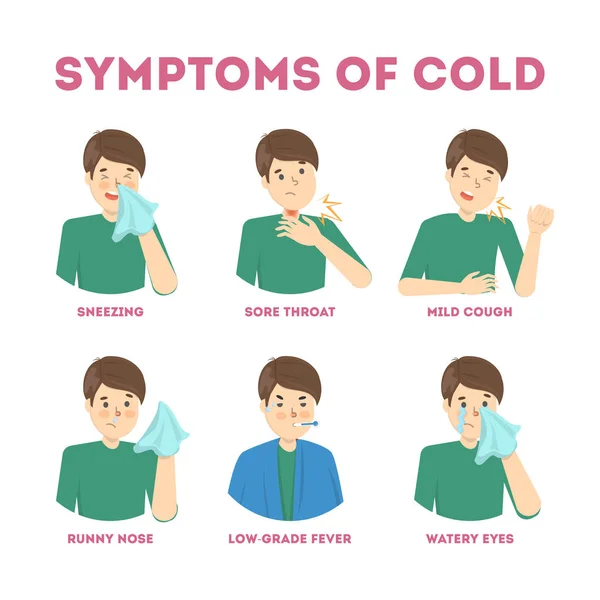
Cold during pregnancy. What to do?
When you're expecting, your immune system works at a slower pace than usual, which is actually a good thing because it protects your growing baby and keeps your body from thinking the fetus is a foreign creature. However, the downside of this immune suppression is that your body does not defend itself against many of the viruses that cause colds, which can make you more vulnerable to symptoms such as nasal congestion, cough, and sore throat.
The good news about even the worst cold symptoms is that your child doesn't experience any of them. In fact, the environment of the womb keeps the baby completely protected from these hardships.
As far as you are concerned, a cold is basically an uncomfortable irritation that is best relieved by rest, drinking plenty of water, patience, and consultation with your doctor. The doctor must be aware of all your symptoms and ailments, including any cold. If necessary, he can also prescribe you the necessary medicines that are considered safe during pregnancy.
Although many cold medicines are usually prohibited during pregnancy, you do not need to suffer from a runny nose and a violent cough when you are pregnant. Some of the most effective cold remedies are not available over the counter.
Here are some of them:
- Lying in bed doesn't necessarily shorten the duration of a cold, but if your body is asking for some rest, be sure to listen.
- If you do not have a fever or cough, do some light to moderate exercise that is safe for pregnant women. It can really help you feel better faster.
- Keep eating. Sure, you probably don't have much of an appetite, but eating as healthy a meal as possible can help you manage some of your cold symptoms.
- Vitamin C foods can help boost your immune system naturally. Try all kinds of citrus fruits (oranges, tangerines, grapefruits), strawberries, melon, kiwi, mangoes, tomatoes, bell peppers, papaya, broccoli, sauerkraut and spinach.
- Zinc can also help boost the immune system.
 Pregnant women should aim to get 11-15 milligrams each day from all sources, including vitamins.
Pregnant women should aim to get 11-15 milligrams each day from all sources, including vitamins. - Fever, sneezing and a runny nose help you lose fluids that you and your baby need. Warm drinks are soothing, so keep a thermos of hot beverages like ginger tea, hot soup, or chicken broth close at hand. Try to drink enough to stay "well hydrated" - your urine should be the color of pale straw. Water and juices also work great, but they don't have to be very cold.
- If you have a runny nose, elevate your head with a pair of pillows to help you breathe easier. Cold patches can also help. They gently open the nasal passages, making it easier to breathe, moreover, they are sold without a prescription and are completely safe.
- If the air in the house is dry, you can use a special humidifier. Well, or according to my grandmother's recipe - put wet towels on the battery (during the heating season).
- Use saline nasal drops, sprays or rinses. They help moisturize the nasal passages.
 Since these remedies are not drugs, they are completely safe to use and can be used as often as needed.
Since these remedies are not drugs, they are completely safe to use and can be used as often as needed. - Gargling with warm salt water (1/4 teaspoon of salt per 250 ml of warm water) can relieve itching or sore throats, clear runny noses, and even help control coughs.
- A couple of teaspoons of honey (can be dissolved in warm water with lemon) has been shown to help suppress a dry cough at least as effectively as an over the counter cough syrup.
Be healthy!
Back to the list of articles
Colds during pregnancy: how to treat?
Any cold or respiratory disease in early pregnancy, during the primary formation of the fetus, can lead to unpredictable consequences and complications. The matter is complicated by the fact that most medications are absolutely contraindicated for use during gestation.
In this regard, the treatment and prevention of colds in pregnant women is an important issue, which should be approached especially responsibly! The main thesis is: be careful with medicines and apply mild preventive measures based on alternative medicine methods to avoid respiratory diseases and flu.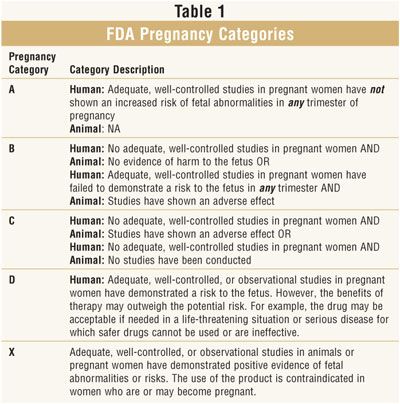
"One for two - immunity"
This is a very fragile system, it is not necessary to interfere in its work, but it is necessary to support and strengthen it. Pregnancy belongs to the category of special, albeit temporary, conditions during which a woman needs additional protection.
This issue will help simple recommendations that are available to everyone:
• During the period of frequent weather changes, it is necessary to dress warmer, paying special attention to footwear.
• During an epidemic, it is better for a pregnant woman to refrain from being in crowded places - transport, metro, shops and hospitals. If there is an urgent need, to prevent possible infection, a protective respiratory mask should be worn before leaving the house.
• Be especially careful about hygiene after visiting the street and public places. Upon returning home, the first thing to do is wash your hands thoroughly.
Interesting: More than 90% of all acute respiratory infections are caused by viruses, about 10% are bacteria and other pathogens. Accordingly, any soap can be used, not necessarily antibacterial.
• Before going outside, you can lubricate the nasal mucosa with oxolin ointment. Upon returning home, flush the upper respiratory tract with soda solution.
• Rationalization of nutrition and intake of vitamins will strengthen the immune defense. It is especially useful to eat fruits and vegetables that are enriched with vitamins and have not undergone heat treatment.
Interesting: our grandmothers also said: in order not to get sick, you need to drink chicken broth! Strange, but until recently, scientists did not attach much importance to this prophylactic. Pulmonologist Stefan Rennard decided to find out if this was true or not. The professor conducted a study and proved that the use of chicken broth affects the mobility of neutrophils, white blood cells that protect the body from infections and activate the immune system.
- Vitamins can be taken using ready-made pharmaceutical multivitamin complexes. Before choosing a drug, you should consult your doctor.
- Compliance with the regimen and duration of sleep - at least 9 hours a day. The possibility of psychotraumatic situations should be minimized.
- Maintaining cleanliness in the living quarters (ventilation, wet cleaning).
- Humidification is an important aspect in the prevention of influenza and respiratory diseases. If air conditioners or heaters are used in the house of a pregnant woman, it would be best to purchase a mechanical humidifier.
Medications for prevention
- Grippferon - a drug in the form of drops for the nose, which provides prevention and treatment of influenza, is not contraindicated for pregnant and lactating women. The medicine stimulates an increase in immunity, has a pronounced antiviral effect that can protect against colds, infections and influenza varieties.
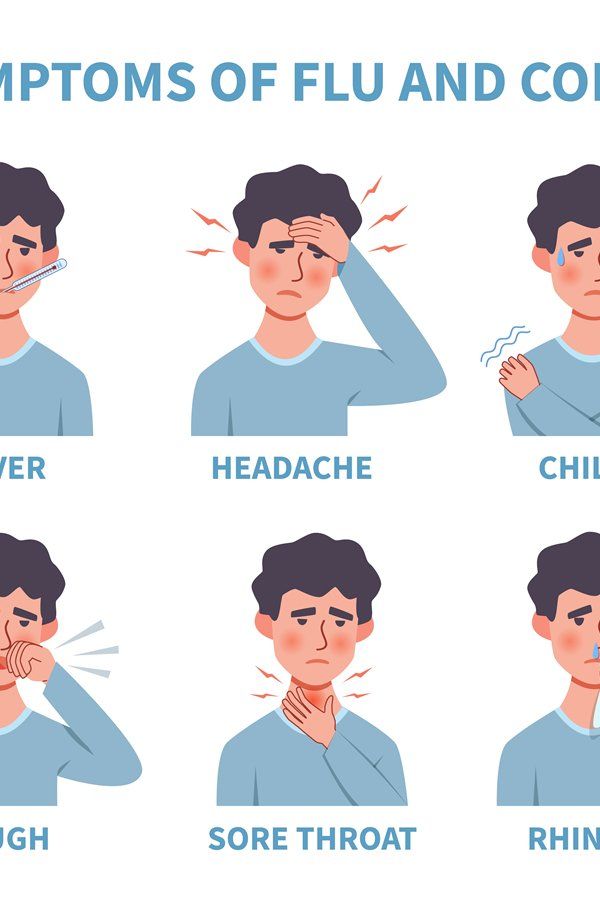
- Ascorbic acid - can be used as a separate source of vitamin C in a synthetic version, with a reduced daily intake from food. Ascorbic acid not only prevents infection, but also fights viruses that have already entered the body of a woman.
- Viferon is a nasal ointment that is prescribed for the prevention of influenza and respiratory infections during an epidemic. The ointment has protective and immunomodulatory effects, and also allows you to deal with disorders that are already occurring in the body at the time of use. Viferon in the form of a nasal ointment has no contraindications for use in pregnant women at any time, including the first trimester.
- Aquamaris is a natural drug in the form of a nasal spray that allows you to moisturize the nasal mucosa, thereby reducing the risk of influenza viruses entering the nasal cavity.
I would like to say a few words about such a method of prevention as vaccination. Most often, the expectant mother may be at risk of becoming infected due to the annual influenza epidemic.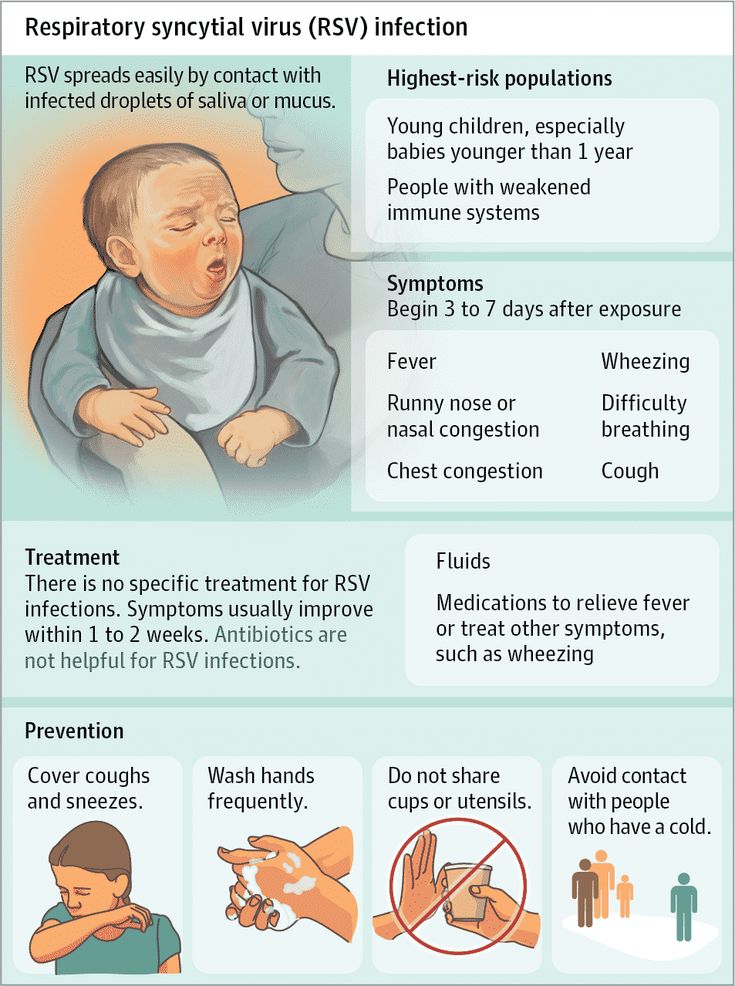 This disease is dangerous for a pregnant woman precisely because of its complications: pneumonia, bronchitis, otitis media. Influenza in a pregnant woman can also affect the health of the fetus. Most of all, it is dangerous in the early stages of pregnancy, when the tissues and organs of the human embryo are laid and formed. Viral intoxication or drug exposure can lead to pathology of the child's organs. In later pregnancy, there is a risk of infection of the fetus.
This disease is dangerous for a pregnant woman precisely because of its complications: pneumonia, bronchitis, otitis media. Influenza in a pregnant woman can also affect the health of the fetus. Most of all, it is dangerous in the early stages of pregnancy, when the tissues and organs of the human embryo are laid and formed. Viral intoxication or drug exposure can lead to pathology of the child's organs. In later pregnancy, there is a risk of infection of the fetus.
The most dangerous consequence of influenza in a pregnant woman is threatened miscarriage or premature birth!
It is quite natural that expectant mothers often wonder whether or not to vaccinate.
Studies have concluded that the use of inactivated ("killed") influenza vaccines does not have a teratogenic effect on the fetus and does not harm the health of a pregnant woman. After consulting with your doctor about such a vaccination, you can come to an optimal solution. If an influenza epidemic is inevitable, and the pregnant woman has no contraindications, then the vaccine should be given. If a pregnant woman has a negligible risk of infection, she does not come into contact with a large number of people, or is opposed to vaccination, then you can not do it. According to research, it is known that vaccination of mothers reduces the risk of influenza infection of a born child by 63%. Seasonal influenza prevention is carried out in September, October. Vaccinations for pregnant women are recommended from the second trimester of pregnancy.
If a pregnant woman has a negligible risk of infection, she does not come into contact with a large number of people, or is opposed to vaccination, then you can not do it. According to research, it is known that vaccination of mothers reduces the risk of influenza infection of a born child by 63%. Seasonal influenza prevention is carried out in September, October. Vaccinations for pregnant women are recommended from the second trimester of pregnancy.
In the period of a planned pregnancy, a flu shot is given 1 month before it: the formation of immunity occurs 2-4 weeks. Protection after vaccination lasts about a year.
If infection does occur, action should be taken immediately if at least one symptom of the disease is detected. The health of a pregnant woman and her unborn child depends entirely on her responsibility and respect for her own body.
Proven folk remedies will be used first. Since pregnant women cannot steam their legs, steam their hands, and this will facilitate nasal breathing. Bundle up, put on woolen socks and crawl under the covers: warmth, peace and sleep are good for colds. Do not forget to drink plenty of water - hot green tea with lemon and honey, lime blossom tea, cranberry juice, rosehip broth, dried fruit compote. Ginger in the form of tea also helps, not only with catarrhal symptoms, but with nausea in the morning.
Bundle up, put on woolen socks and crawl under the covers: warmth, peace and sleep are good for colds. Do not forget to drink plenty of water - hot green tea with lemon and honey, lime blossom tea, cranberry juice, rosehip broth, dried fruit compote. Ginger in the form of tea also helps, not only with catarrhal symptoms, but with nausea in the morning.
Various hot milk drinks are also suitable. Honey can be added to milk, and it is best to boil it on onions. It must be emphasized right away that not all herbs for colds during pregnancy can be used. Here is a list of medicinal plants that are contraindicated: aloe, anise, barberry, elecampane (grass and root), sweet clover, oregano, St. John's wort, strawberries (leaves), viburnum (berries), raspberries (leaves), lemon balm, lovage, wormwood, licorice ( root), celandine, sage. Accordingly, preparations containing these plants should not be taken.
The use of medicines for colds during pregnancy must be treated with great care!
It is contraindicated to use the following drugs : Pertussin, Tussin plus, Joset, Glycodin, Ascoril, Travisil, Broncholitin, ACC, Grippeks, Codelac, Terpinkod. Do not use lozenges and lozenges for sore throat or cough are also undesirable due to the likelihood of allergic reactions.
Do not use lozenges and lozenges for sore throat or cough are also undesirable due to the likelihood of allergic reactions.
Spray Pinosol, judging by the components indicated in the instructions, is not dangerous during pregnancy. However, the essential oils contained in the preparation - pine, peppermint, eucalyptus, thymol, guaiazulene (wormwood oil) - can lead to an allergic reaction with swelling of the nasal mucosa.
Viferon suppositories are allowed to be used only after 14 weeks from the start of conception. This drug contains recombinant human interferon alpha-2, ascorbic acid and alpha-tocopherol acetate and has antiviral, immunomodulatory and antiproliferative effects. It is used in the treatment of various infectious and inflammatory diseases in adults and children (including newborns). In the form of an ointment, Viferon is used to treat herpetic lesions of the skin and mucous membranes. The ointment is applied in a thin layer to the affected areas of the skin 3-4 times a day for 5-7 days.